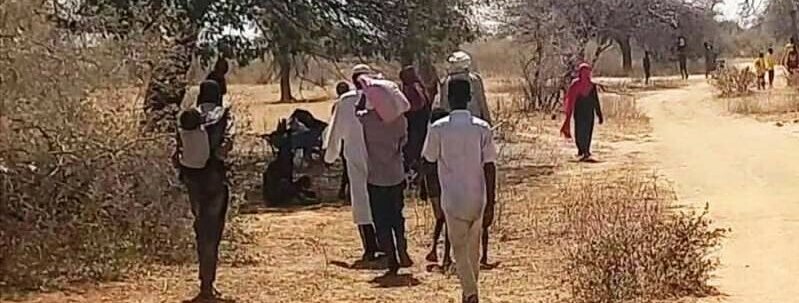Babanusa town in West Kordofan State witnessed fierce battles between the Sudanese army and Rapid Support Forces (RSF) for the third consecutive day, resulting in a significant number of casualties.
Since Saturday, RSF soldiers have imposed a siege on the headquarters of the army’s 22nd Infantry Division while the army fiercely defends the strategic buildings of the division.
Resistance Committees in Babanusa said in a statement obtained by Radio Tamazuj on Monday that the city witnessed the most intense military battles, resulting in the deaths of dozens of soldiers from both sides.
The statement indicated that RSF is determined to enforce a severe siege on the 22nd Infantry Division and the headquarters of the 89th Brigade.
It further explained that the army is defending fiercely by planting explosives and launching aerial bombardment to target RSF’s gatherings in neighbourhoods and the Babanusa dairy factory.
The statement clarified that media reports about RSF seizing control of the 22nd Division headquarters are unconfirmed due to the ongoing battles and heavy artillery shelling.
Mahmoud Juma, the spokesperson for the Resistance Committees in Babanusa, affirmed that Babanusa city is witnessing the most intense, prolonged military battles.
Juma confirmed to Radio Tamazuj that “Babanusa city is witnessing fierce and continuous military battles between the conflicting parties”. He stated that RSF had strengthened its presence in the city after the arrival of a large number of fighters from East Darfur and parts of the Kordofan region.
He added, “The army has planted explosive shields in several neighbourhoods to halt the advance of RSF, and most of the civilians’ properties and houses have been completely burned, turning the city into ashes.”
Abdulrahman Mohamed Abdulrahman, a resident of Babanusa City, told Radio Tamazuj that the continued battles have led to the displacement of nearly 15,000 individuals, comprising 750 families, to the Um Jack area west of Babanusa City.
He noted that the conflict-displaced families are facing harsh humanitarian conditions due to overcrowding in schools and government buildings, food and water shortages, and the lack of containers to store water, resulting in the use of car tyres.
Afrah Mohamed, a civil society activist in Babanusa, said: “Hundreds of families who fled to Um Jack village are living in difficult conditions. Most displaced persons live in the open and under trees, fearing aerial surveillance by the military aircraft tracking RSF’s movements entering adjacent areas.”
He further said many people are suffering from overcrowding in all schools and government institutions in Um Jack village due to shortages of food, water and shelter.




